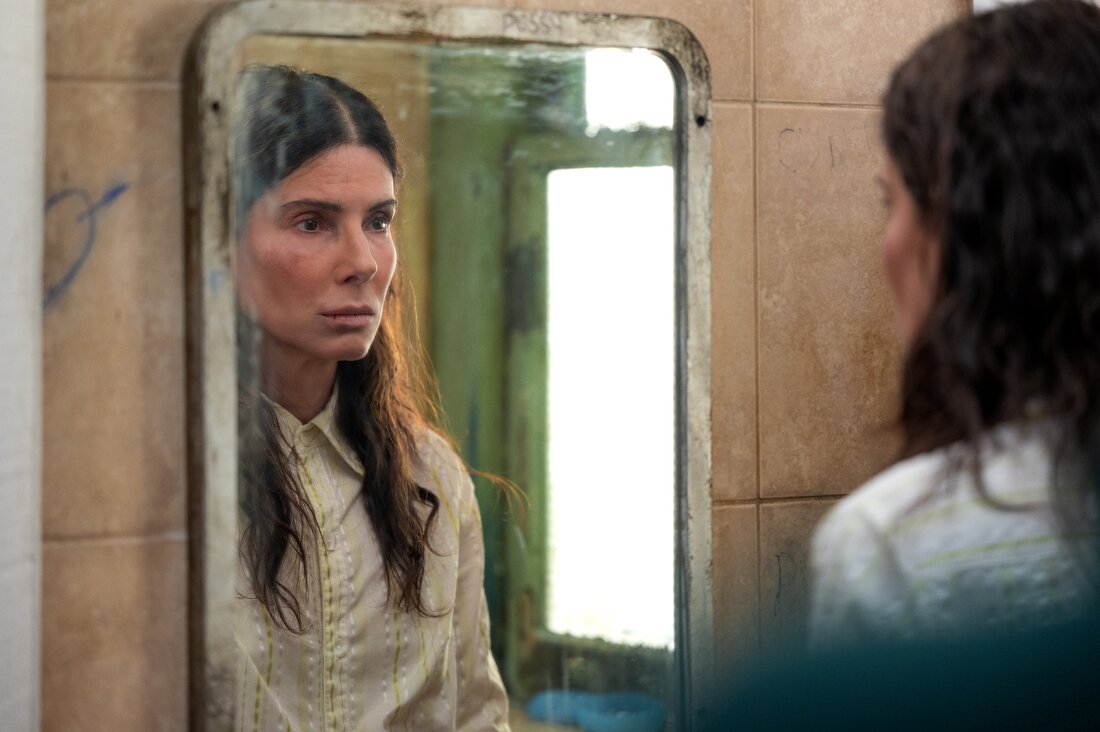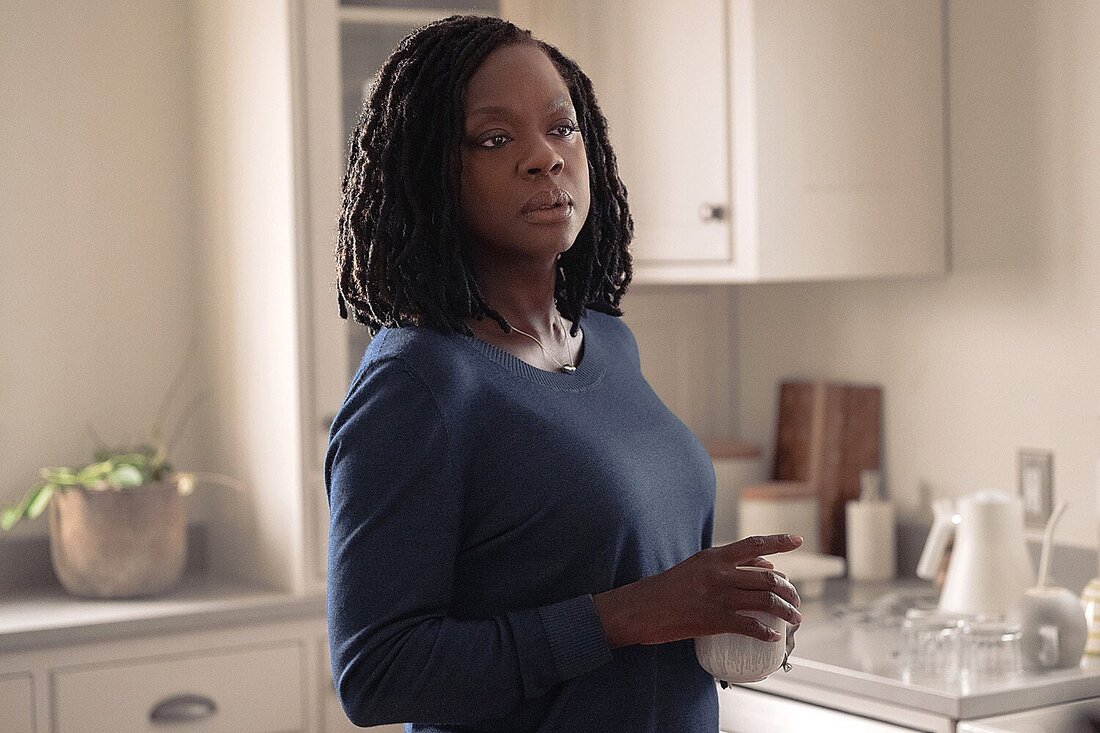|
Sandra Bullock in The Unforgivable (2021) Nora Fingscheidt’s drama-thriller The Unforgivable tells an intriguing story of privilege and socioeconomic status. While focused on the story of one woman’s journey post-incarceration, the film weaves different perspectives from characters who each see this woman’s release from their own lens. Based on the 2009 British miniseries Unforgiven, The Unforgivable is about the pain of navigating the prison system and the outside world. Released from prison after serving a sentence for a violent crime, Ruth Slater (Sandra Bullock) re-enters a society that refuses to forgive her past. Facing severe judgment from the place she once called home, her only hope for redemption is finding the estranged younger sister she had to leave behind. In her efforts to reunite with Katie (Aisling Franciosi), Ruth faces one obstacle after another. Those whose lives were disrupted by the violent crime are now disrupted by her release into society. The Unforgivable has a story of conveniently placed plots points to get characters from A to B. The story takes an interesting subject, a woman whose incarceration and release have a ripple effect on the only family she has left: her sister. Ruth is motivated by love; there is a push-pull between wanting to find her sister and not wanting to disrupt the life she now has with another family (having entered foster care system). Katie’s adoptive parents (played by Richard Thomas and Linda Emond) ensure she has a good life, but ultimately cannot erase the trauma Katie carries. She remembers the tragedy with Ruth in blurry bits and pieces; too young to fully comprehend at the time, but the experience has always been a part of her on a subconscious level. The film brings warmth to these flashbacks, a great detail that emphasizes how the love between two sisters carried on. If Ruth could just have Katie back, it would be like Ruth regaining a part of herself that’s been missing for 20 years. Carrying the weight of the protagonist’s history is Sandra Bullock, whose performance feels like a canvas of many women’s experiences. Bullock goes on a journey of showing how incarceration affects Ruth, and utilizing the armor she has built around herself as a self-protective mechanism. Ruth’s steely demeanor is often contrasted with flashbacks of the events that led to her prison sentence. Films about ex-cons are so often centered on men; it’s refreshing to watch one led by a woman, and for Fingscheidt to explore some of the looming layers of the prison system that follow Ruth everywhere. Whether it’s a routinely check-in or a side-eye from a stranger, every moment carries an air of judgment. Bullock is great at conveying the deflection, tension, and solitude that has come to define Ruth’s new day-to-day. Given the powerful love she has for her sister, it’s clear what the driving force is behind her actions and this story. While compelling to watch Bullock play against type and exude a lived-in approach to her character, her commitment is let down by clunky writing and a jarring switch between story strands. Viola Davis in The Unforgivable (2021) Somewhere in The Unforgivable is a potentially compelling story about systems, and the people who get lost in them. The prison system, the foster care system, the rehabilitation system. The pain of navigating them for women, and particularly women of color. The overwhelming expectation built within these systems that people are able to adapt between shifts. The ways in which not just women but women of color are affected by rules and regulations designed not to let them succeed. The film tries to balance how characters are impacted differently by these systems depending on privilege and upbringing. Scenes stressing Ruth has done her time and deserves another chance are juxtaposed with scenes that challenge it. Ruth’s path to re-entering society leads her to the scene of the crime: her home, which is now owned by the Ingram family - John (Vincent D’Onofrio), Liz (Viola Davis), and their two sons Ryan (Orlando Lucas) and Daniel (Jude Wilson). Unfortunately as is the case with many of the actors in this film, the talents of D’Onofrio and especially Davis are underused. John is a lawyer sympathetic to Ruth’s case and wants to help her situation, whereas Liz does not want Ruth anywhere near her family because of the woman’s past. Davis is fantastic as always but is let down by the screenplay. She and Bullock share a key scene that sheds light on the events leading to Ruth’s incarceration; the intended emotional impact falls flat. So much of the plot and Ruth’s character development had been rushed in order to reach this moment.
The Unforgivable has an over reliance on conveniency, an inexplicable stand-off, and a rushed twist that sends the story into lightning-mode frenzy to wrap up. The ending is one of the highlights of this film, but also feels like a missed opportunity in that it should have been far more emotionally resonating. The heart is there, and the consistency is there. Fingscheidt ties Ruth and Katie together often throughout the film by way of vivid and fragmented memories. But the story tries to pack too much in its runtime, and makes a panicky switch in the final act as though the filmmakers realized they had to find an ending. With enough material to stretch into a miniseries, a longer format may have done The Unforgivable more favours. The Unforgivable is now available to watch on Netflix at www.netflix.com/theunforgivable.
0 Comments
Leave a Reply. |
Archives
June 2024
Categories |



 RSS Feed
RSS Feed